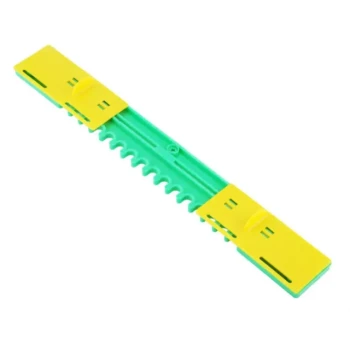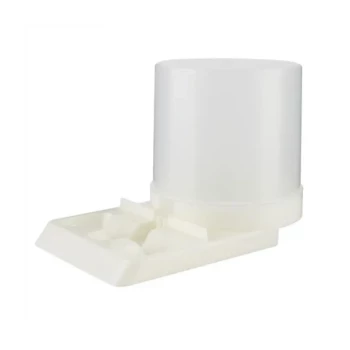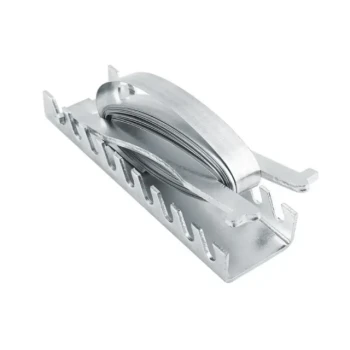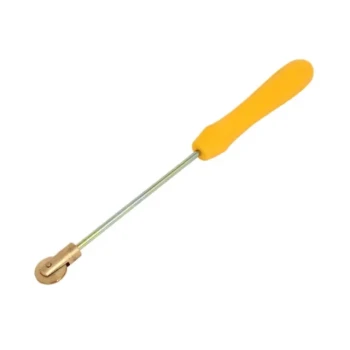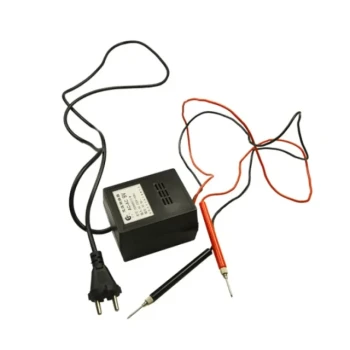The most effective way to prevent robbing is by systematically managing your apiary to minimize scent cues and limit physical access. This involves using entrance reducers, being meticulous about preventing honey or syrup spills, conducting hive inspections efficiently, and strategically timing your feeding and work to coincide with periods of low bee activity.
Robbing is a cycle of opportunity and desperation that can decimate a colony. Preventing it is not about reacting to an attack, but about proactively managing your apiary's scent profile and physical defenses to make your hives unappealing and difficult targets from the start.
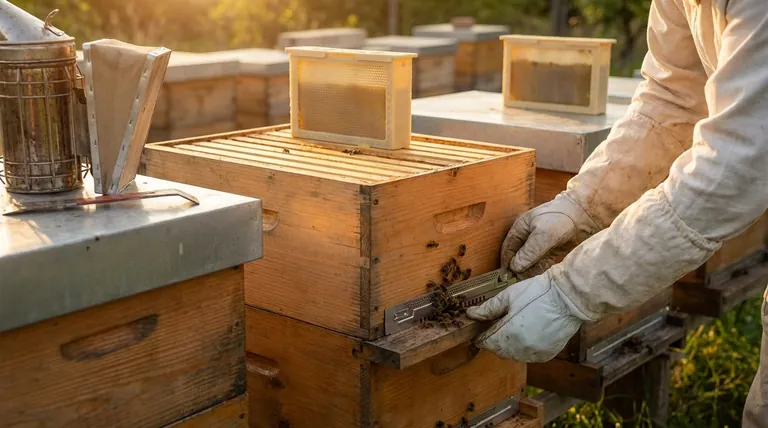
Understanding the Robbing Mindset
Robbing is a natural survival instinct for honey bees. When natural nectar sources become scarce (a period known as a nectar dearth), strong colonies will actively search for easier food sources, and a weak or poorly managed hive is an ideal target.
The Scent Trail: Your Greatest Vulnerability
The primary trigger for a robbing event is the scent of exposed honey or sugar syrup. Robber bees are expert scouts that are constantly looking for the smell of a quick meal.
Any spilled syrup, exposed honey on frames left out, or even a hive left open too long can release a powerful scent that alerts neighboring colonies. This is why meticulous cleanliness is a cornerstone of prevention.
Weak Defenses: An Open Invitation
Once robbers have a scent, they test a hive's defenses. A large, undefended entrance is like an open door, inviting them inside.
Weaker colonies or new nucs simply don't have enough guard bees to defend a full-sized entrance. A strong colony can easily overwhelm their defenses and gain access to the hive's stores.
Proactive Apiary Management to Prevent Robbing
Your goal is to make your hives invisible and impenetrable to would-be robbers. This is achieved through consistent, thoughtful management practices.
Strategic Feeding Practices
How and when you feed is one of the most critical factors in robbing prevention. Open feeding or sloppy techniques are the leading causes of robbing events.
Use internal feeders (like frame feeders or top feeders) instead of entrance feeders. This contains the scent of syrup within the hive, making it much harder for outside bees to detect.
Always feed in the late afternoon or evening. This gives your colony time to clean up any small spills and control the scent before foraging bees from other hives become active the next morning.
Fortifying the Hive Entrance
The entrance is the primary point of conflict. You must ensure your bees can adequately defend it.
Use entrance reducers on all but the strongest colonies, especially during a nectar dearth. For new or weak colonies, reducing the entrance to a single bee's width can be a hive-saver.
Ensure all your hive equipment is bee-tight. Cracks or gaps in hive bodies and covers can become secondary entrances for robbers, bypassing the main guard force entirely.
The "Get In, Get Out" Inspection Method
The longer a hive is open, the more its honey scent is released into the air. Efficiency during inspections is a form of defense.
Prepare all your tools and equipment before you open the first hive. This minimizes the time you spend with the colony exposed.
Work through each colony quickly and deliberately. Avoid leaving frames of honey or brood sitting out, as this is a powerful attractant.
Understanding the Trade-offs
While preventive measures are essential, it's important to understand their potential downsides to apply them correctly.
The Congestion of Entrance Reducers
While critical for defense, an entrance reducer can cause congestion and limit ventilation during a strong nectar flow. This can lead to bearding and reduce foraging efficiency. Adjust the opening size based on colony strength and environmental conditions.
The Risk of Internal Feeders
Internal feeders are superior for preventing robbing, but they are not without risk. Bees can drown in feeders if not used correctly, and a leaky internal feeder can still cause robbing issues inside the hive, which can be harder to spot.
The Trap of "Quiet" Robbing
Not all robbing is a frantic, obvious battle at the hive entrance. Quiet robbing occurs when robbers from a nearby hive slowly and steadily infiltrate a weaker one, often going unnoticed. This is especially common between hives in the same apiary. This reinforces the need for constant vigilance and proactive defense, even when you don't see a fight.
Making the Right Choice for Your Apiary
Your prevention strategy should adapt to your specific situation, colony strength, and the time of year.
- If your primary focus is establishing a new or weak colony: Your absolute priority is defense. Use an entrance reducer set to its smallest opening and be exceptionally careful with feeding.
- If your primary focus is managing through a nectar dearth: Your top priority is scent control. Stop all open feeding, inspect for any spills or exposed honey, and reduce the frequency and duration of your hive inspections.
- If your primary focus is routine management during a flow: Your priority is efficiency. Continue to use appropriate entrance sizes for your colonies and conduct inspections quickly and preferably late in the day.
By managing your apiary with a focus on defense and discretion, you shift from reacting to robbing to preventing it entirely.
Summary Table:
| Prevention Method | Key Action | Primary Benefit |
|---|---|---|
| Strategic Feeding | Use internal feeders; feed in late afternoon/evening | Contains scent, prevents detection by robbers |
| Fortifying Entrances | Install entrance reducers on weak/new colonies | Creates a defensible choke point for guard bees |
| Efficient Inspections | Prepare tools beforehand; work quickly and deliberately | Minimizes time hive is open, reducing scent release |
| Apiary Cleanliness | Immediately clean up any honey or syrup spills | Eliminates the primary scent trail that attracts robbers |
Safeguard your investment and ensure your colonies thrive.
Robbing events can lead to significant losses for commercial apiaries and distributors. HONESTBEE supplies the durable, bee-tight equipment and reliable internal feeders you need to implement these proactive defense strategies effectively. Our wholesale-focused operations are designed to support your business's scale and success.
Let's discuss your apiary's specific needs. Contact our team today to explore our range of beekeeping supplies and equipment.
Visual Guide
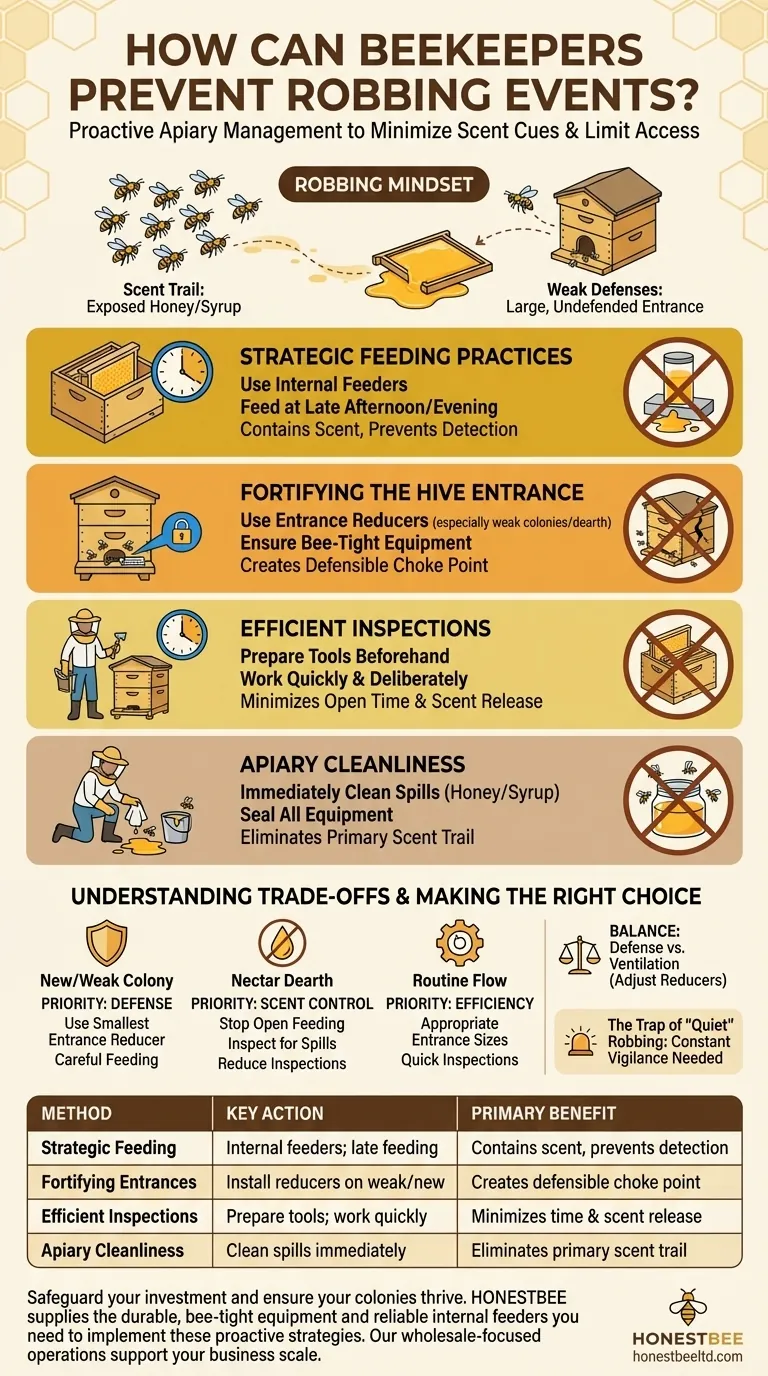
Related Products
- Beehive Entrance Reducer Guardian Metal Hive Entrance for Bees
- Multi-Functional Rotary Hive Entrance Disc for Beekeeping
- Multi-Functional Sliding Hive Entrance for Beekeeping
- Beehive Entrance Discs Plastic Bee Entrance Disc for Bee Hives
- HONESTBEE Entrance Bee Feeder Professional Hive Nutrition Solution for Beekeeping
People Also Ask
- What are the features of the side with oblong holes in the entrance reducer? A Guide to Hive Defense & Health
- Why are specific wooden platforms installed at the hive entrance? Enhancing Guard Bee Behavioral Observation
- What are the primary protective functions of entrance reducers and metal mouse guards? Secure Your Winter Hive Success
- How can a Langstroth hive entrance be adjusted? Mimic Natural Bee Preferences for a Healthier Hive
- What size is the entrance hole in a native bee hive? The 13mm Standard for a Thriving Colony


